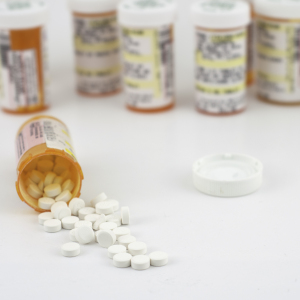Promised savings from the passage of Obamacare have not materialized. While its impact on insurance premiums is admittedly complex and difficult to measure precisely, many Americans are paying more thanks to the President’s signature healthcare law, and its overall costs are today understood as likely to exceed initial projections. It is with this backdrop that a recent analysis from the RAND Corporation identified a means to save Americans $44 billion on health expenditures over the next decade, while also granting greater access to life-saving medications for millions of Americans. Unfortunately, special interests are pressuring the FDA to make sure that never happens.
Advances in the use of biological drugs have provided improved treatments for diseases such as rheumatoid arthritis, psoriasis, and cancer. Biologics differ from traditional chemical drugs in that they consist of more complex, larger molecules and are developed through use of living organisms. Some, like vaccines, have been around for decades, but recent advances have made possible a biologic revolution in which treatments can even be tailored to individual patients.
Sadly, biologic drugs are very expensive, with an average annual price tag of more than $34,000. By 2020, biologics are expected to account for 75% of total U.S. drug spending. While they provide new treatment options for serious, chronic conditions, the healthcare system is straining to absorb their tremendous costs.
Introduction of biosimilars, generic alternatives to biologics, into the U.S. market would relieve some of the financial pressure.
Drug patents last for 20 years, while FDA granted exclusivity to market a drug varies in length. Both exist to encourage innovation and allow drug creators to recoup the massive costs for developing and seeing a new drug through the FDA approval process. However, these protections are also finite in order to ensure that competition eventually forces prices down for consumers.
One of the few cost-saving and market-oriented provisions of Obamacare was the expedited pathway created for approval of eligible biosimilars. The Congressional Budget Office estimates competition from biosimilars could reduce costs by 40 percent, yet in four years since the law was passed the FDA has not approved a single biosimilar. Europe, on the other hand, introduced its first biosimilar in 2006, and now has on the market almost two dozen for treatment of diabetes, Crohn’s disease, and cancer, among other illnesses.
Unfortunately, industry groups looking to protect existing monopolies aim to slow the FDA even further. One tactic has been to demand that the FDA require unique International Nonproprietary Names (INNs) – the long, oddly constructed words that identify specific medications – for biosimilars. It is standard for generic versions of drugs under the WHO-administered INN system to share the name of their brand versions in order to avoid confusion and medication errors, and Congress previously debated the issue before deciding specifically not to require unique INNs for biosimilars. A bipartisan group of Senators recently reaffirmed this commitment in a letter to the FDA, stating their belief “that a unique name could lead to patient and prescriber confusion, increasing the possibility of medication errors.”
There are legitimate differences between biosimilars and the generic versions of chemical drugs. Biologics are hard to replicate given their complexity. But any final FDA rule regarding medical equivalency will demand matching quality, safety (including side effects) and effectiveness for biosimilars and their reference drugs, all requirements that can be met, as demonstrated in the European example, without indefinitely perpetuating brand monopolies even after expiration of their patent window. Nor are these concerns sufficient by themselves to explain industry efforts, such as support from manufacturers for state bills to prevent pharmacists from substituting biosimilars for their brand counterparts. What these efforts have in common is a desire to prevent market competition from lowering prices to consumer benefit.
For all the problems injected into the healthcare system by Obamacare, the least the FDA could do is faithfully follow the intent of one of the few provisions aimed at enhancing competition. That requires continuing the long agreed upon standard of same-name generics, as well as rejecting additional efforts to add roadblocks to the approval process. Self-interested delay tactics should not be allowed to deny the tremendous benefits that would follow widespread public access to biosimilars.

